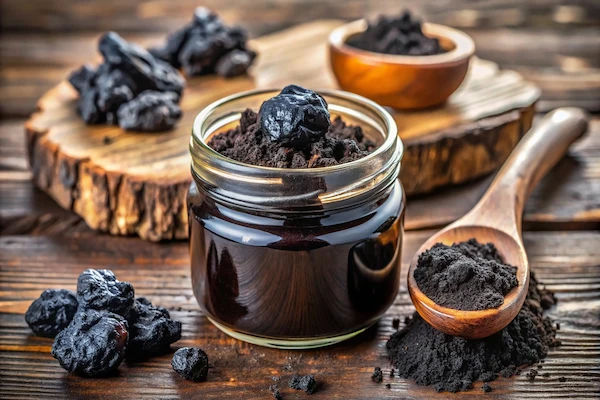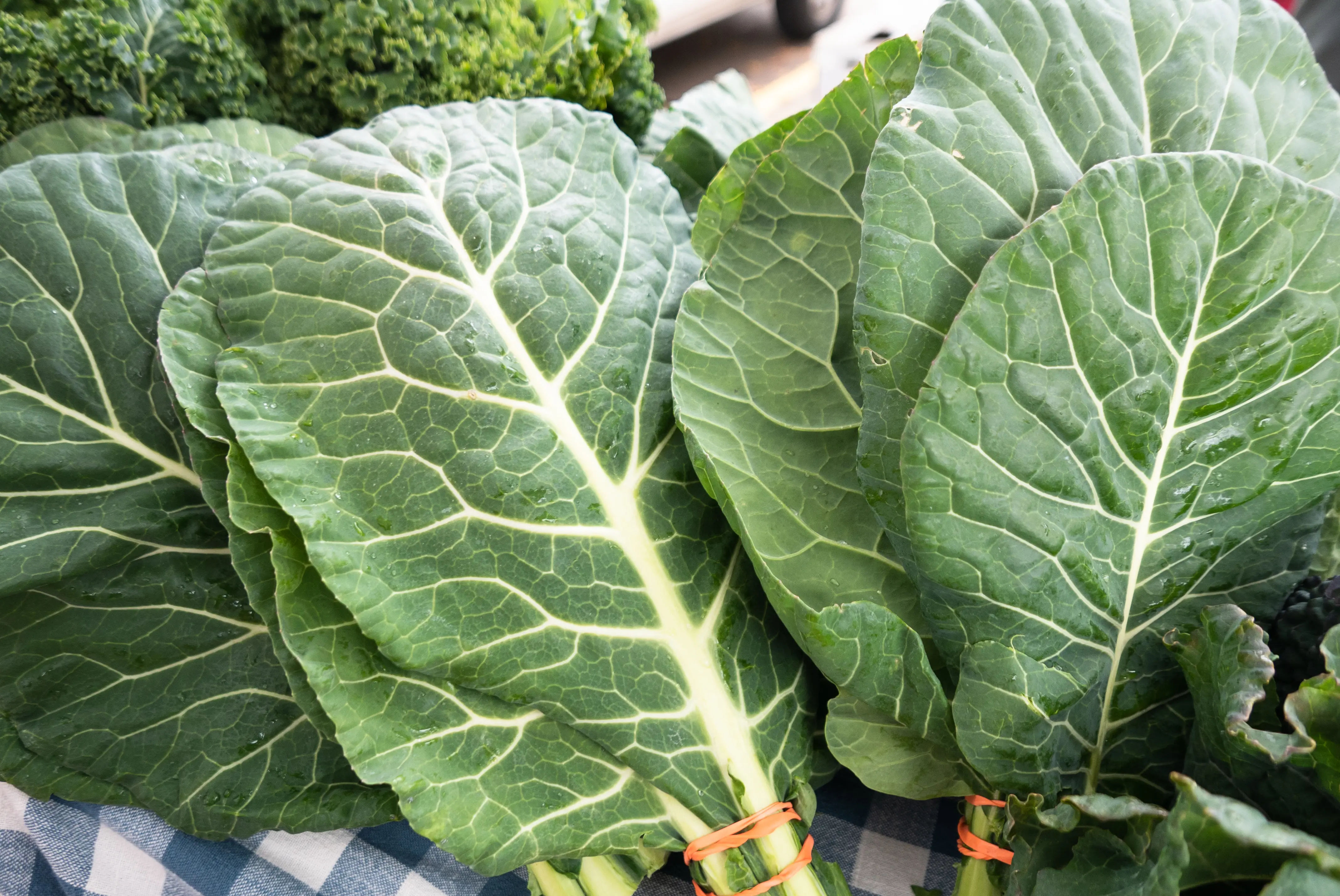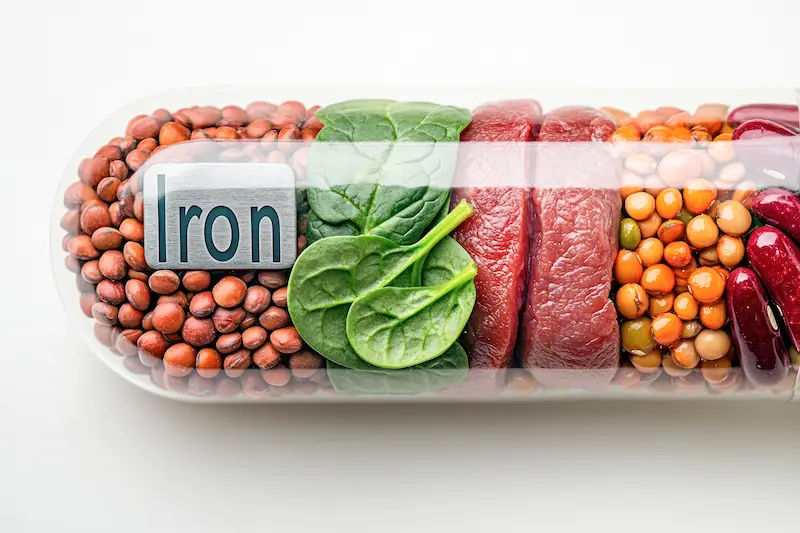Kohlrabi in Ayurveda: Uses, Benefits, and Side Effects
Discover kohlrabi benefits in Ayurveda: how this ayurvedic vegetable supports digestion, heart health, and safe use—plus side effects and tips.

Written by Dr. Md Yusuf Shareef
Reviewed by Dr. Rohinipriyanka Pondugula MBBS
Last updated on 13th Jan, 2026

Introduction
Kohlrabi is gaining attention as more people explore nutritious vegetables that support both traditional and modern wellness practices. This crisp, mildly sweet vegetable is part of the cabbage family and offers fibre, vitamin C and protective plant compounds that contribute to overall health. In Ayurveda, vegetables are selected and prepared to enhance digestion and maintain balance in the body. Understanding kohlrabi through both scientific and Ayurvedic lenses can help you enjoy it in ways that align with taste, nourishment and digestive comfort. This guide explains what kohlrabi is, how it supports health, how to prepare it the Ayurvedic way, who may need to be cautious and how to include it easily in everyday meals.Consult a Top Ayurveda Doctor for Personalised Advice
What Is Kohlrabi?
Overview
Kohlrabi, also known as German turnip, comes from the Brassica oleracea species, making it a close relative of cabbage, kale and broccoli. The rounded bulb is actually a swollen stem, and its attached leafy greens are also edible and nutritious.
Key Nutrition Highlights
It includes:
• Naturally low in calories
• A good source of fibre
• Rich in vitamin C
• Contains potassium and other minerals
• Provides antioxidants and sulphur compounds typical of cruciferous vegetables
These features help explain the wide range of potential benefits associated with kohlrabi as part of a varied diet.
Kohlrabi Benefits Backed by Science and Supported by Ayurveda
The benefits of kohlrabi include:
Digestive Support: Fibre for Regularity
• Fibre adds bulk, supports regular bowel movements and feeds beneficial gut bacteria
• Many adults fall short on daily fibre needs, making vegetables like kohlrabi helpful
Ayurveda Tip
• If raw kohlrabi feels heavy or difficult to digest, cook it gently with cumin, ginger or fennel to make it more comfortable on the digestive system
Immune Function: Vitamin C
• Vitamin C supports the immune system and helps protect cells from oxidative stress
• Kohlrabi is naturally rich in vitamin C compared with many vegetables
Ayurveda Tip
• Choose warm, lightly cooked kohlrabi dishes during cooler seasons for better digestibility and comfort
Heart Health: Fibre and Potassium
• Fibre supports healthy cholesterol levels
• Potassium balances sodium in the body and supports normal blood pressure
Ayurveda Tip
• Combine kohlrabi with spices such as turmeric, garlic and coriander to create heart-supportive meals cooked in a small amount of healthy oil
Weight Friendly and Supportive of Steady Energy
• Low-calorie and high fibre foods help with fullness and appetite control
• Fibre slows digestion, helping promote steady energy and balanced post-meal blood sugar levels as part of an overall balanced diet
Ayurveda Tip
• Pair kohlrabi with lentils, chickpeas or a small amount of healthy fat such as ghee or olive oil for satisfying, balanced meals
Antioxidants and Cruciferous Compounds
• Cruciferous vegetables contain glucosinolates that break down into active compounds studied for cellular protection
• Eating a variety of vegetables, including cruciferous ones, is linked with broad health benefits
Ayurveda Tip
• Light cooking helps preserve flavour and texture, making kohlrabi more enjoyable to eat regularly
Kohlrabi in Ayurveda
The perspective of kohlrabi in ayurveda is:
Ayurvedic Lens: General Guidance
• Ayurveda emphasises seasonal vegetables prepared to support digestion
• Cruciferous vegetables may cause gas formation when eaten raw, so warming spices are often used to aid digestive comfort
Simple Ayurvedic-Inspired Preparations
• Stir fry or sauté: Cut the bulb into cubes and sauté with cumin seeds, mustard seeds, grated ginger, turmeric and black pepper. Finish with coriander and lemon
• Light curry: Simmer with tomatoes, onion, garlic, turmeric and coriander. Add peas or lentils for a balanced meal
• Warm salad: Steam or roast kohlrabi, then toss with olive oil, lemon, salt and toasted cumin or sesame seeds
• Use the greens: Cook kohlrabi leaves like kale or spinach with garlic and a little lemon
Cooking Tips for Better Digestibility
A few cooking tips include:
Practical Tips
• Cut into smaller pieces so it cooks evenly and becomes easier to digest
• Avoid overcooking to maintain nutrients and a pleasant texture
• Add digestive spices such as cumin, fennel, coriander, ginger and asafoetida for extra comfort
Possible Side Effects and Safety
Possible side effects and safety tips include:
Gas and Bloating
• Cruciferous vegetables may cause gas in some individuals
• Start with small portions, cook kohlrabi well and chew thoroughly for better tolerance
Thyroid Considerations
• Cruciferous vegetables contain natural compounds sometimes called goitrogens
• Typical amounts are safe for most people, particularly when cooked
• Those with thyroid conditions should follow their clinician’s personalised advice
Blood Thinners and Vitamin K
• Kohlrabi greens contain vitamin K, which can affect medicines such as warfarin
• Consistent intake of vitamin K-rich greens is important when taking such medications
Allergies
• Allergies to kohlrabi are uncommon but possible, especially in people sensitive to related vegetables
Food Safety and Storage
The food and safety storage tips include:
Basic Guidelines
• Choose firm bulbs without cracks and with fresh leaves
• Refrigerate bulbs for up to a week or longer, and use leaves within a few days
• Wash well before cutting and use clean utensils
Buying, Storing and Prepping Kohlrabi
Tips for buying, storing and prepping kohlrabi include:
How to Choose
• Select small to medium bulbs, as they tend to be sweeter and crisper
• Leaves should look fresh if still attached
How to Prep
• Remove leaves and set aside
• Trim the base and peel any thick outer skin
• Slice, cube or grate depending on your recipe
How to Store
• Keep bulbs unwashed in the crisper drawer
• Wrap leaves in a damp towel or breathable bag
Easy Serving Ideas
Some serving ideas for kohlrabi include:
Practical Ways to Enjoy Kohlrabi
• Raw and crunchy: Grate or slice thinly into slaws with carrot, apple, lemon and yoghurt or olive oil dressing
• Roasted: Toss pieces with olive oil, salt, pepper and turmeric, then roast until golden
• Soups and stews: Add diced kohlrabi for extra body and fibre
• Quick greens: Sauté kohlrabi leaves with garlic, chilli and lemon
Who Might Benefit Most
It is most beneficial in:
• Individuals looking to increase vegetable variety and fibre
• People wanting more vitamin c-rich vegetables
• Anyone building heart-supportive meals with potassium-containing produce
• Home cooks exploring ayurvedic-inspired vegetables that are versatile and budget-friendly
How Often Should You Eat Kohlrabi
The frequency of eating kohlrabi includes:
Balanced Intake
• Rotate kohlrabi with other vegetables throughout the week
• Enjoy both raw and cooked forms according to your digestion and taste.
Conclusion
Kohlrabi is a versatile, nutrient-rich vegetable that fits comfortably into both Ayurvedic and modern nutritional approaches. Its fibre, vitamin C, and plant compounds support digestive health, immune function and overall wellbeing when enjoyed as part of a balanced diet. With simple cooking methods and thoughtful use of spices, kohlrabi becomes easy to digest and enjoyable in a wide range of dishes. Individuals with thyroid conditions or those taking blood thinners should pay attention to preparation and portion consistency. By including kohlrabi regularly alongside other vegetables, you can enhance variety, flavour and nourishment in your everyday meals.Consult a Top Ayurveda Doctor for Personalised Advice
Consult a Top Ayurveda Doctor for Personalised Advice

Dr. Pepsy Jose
Panchakarma Practitioner
14 Years • BAMS, MD Ayurveda (Panchakarma)
Bengaluru
AYURRHYTHM HOLISTIC CLINIC AND PANCHAKARMA THERAPY, Bengaluru

Dr. Anjan Das
Ayurveda Practitioner
8 Years • Ayurvedacharya ( B.A.M.S )
Dumdum
Vedhive Ayurveda Clinic, Dumdum

Dr. Rik Sadhukhan
Ayurveda Practitioner
8 Years • BAMS
Kolkata
Vedhive Ayurveda, Ballygunge, Kolkata

Dr. Shiv Prakash Singh
Ayurveda Practitioner
19 Years • BAMS
Kolkata
Vedhive Ayurveda College Street, Kolkata
Consult a Top Ayurveda Doctor for Personalised Advice

Dr. Pepsy Jose
Panchakarma Practitioner
14 Years • BAMS, MD Ayurveda (Panchakarma)
Bengaluru
AYURRHYTHM HOLISTIC CLINIC AND PANCHAKARMA THERAPY, Bengaluru

Dr. Anjan Das
Ayurveda Practitioner
8 Years • Ayurvedacharya ( B.A.M.S )
Dumdum
Vedhive Ayurveda Clinic, Dumdum

Dr. Rik Sadhukhan
Ayurveda Practitioner
8 Years • BAMS
Kolkata
Vedhive Ayurveda, Ballygunge, Kolkata

Dr. Shiv Prakash Singh
Ayurveda Practitioner
19 Years • BAMS
Kolkata
Vedhive Ayurveda College Street, Kolkata
More articles from General Medical Consultation
Frequently Asked Questions
Q.Is Kohlrabi Really an Ayurvedic Vegetable
Kohlrabi fits well into Ayurvedic cooking, especially when prepared with warming spices that support digestion.
Q.What Are the Top Kohlrabi Benefits
Kohlrabi provides fibre for digestive health, vitamin C for immune support, potassium for heart health and protective plant compounds typical of cruciferous vegetables.
Q.Is It Better to Eat Kohlrabi Raw or Cooked
Both are suitable. Some people tolerate cooked kohlrabi better due to reduced gas forming potential.
Q.Does Kohlrabi Affect Thyroid Health
Normal amounts are generally safe, especially when cooked and when iodine intake is adequate. Those with thyroid conditions should follow medical advice.
Q.Can Kohlrabi Interact with Blood Thinners
Kohlrabi greens contain vitamin K, which can affect warfarin. Maintain consistent intake and follow your clinician’s guidance.




